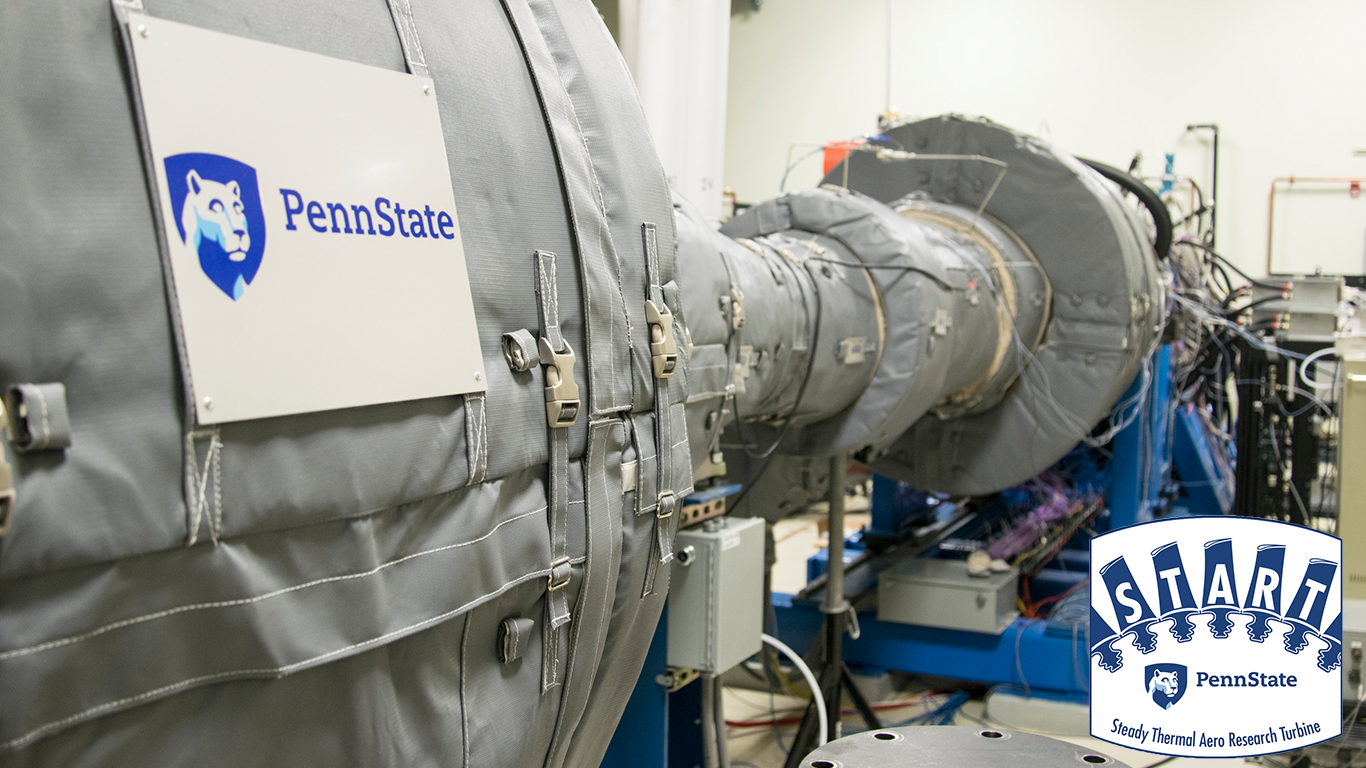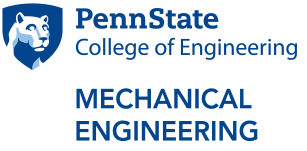
ARPA-E awards Penn State $4.7M for advancing sensor integration in gas turbines
March 25, 2019
UNIVERSITY PARK, Pa. – A novel manufacturing process in Penn State's Department of Mechanical Engineering that will print integrated, real-time sensors into complex systems such as gas turbines received $4.7 million from the U.S. Department of Energy’s Advanced Research Projects Agency-Energy.
“A major roadblock toward integration of sensors into critical gas turbine components is the ability to adhere sensors that are accurate and reliable,” said Karen A. Thole, distinguished professor and department head of mechanical engineering. “With the advancement of metal printing turbine components through additive manufacturing, the challenge of integrating sensors becomes even more important for developing new turbine engines.”
Gas turbine-based systems will be the most common approaches for rapidly growing areas of electrical energy production and will remain important in aircraft propulsion. Gas turbine manufacturers are embracing additively manufactured parts to increase the speed at which they develop engines and for higher efficiencies. Whether these parts can withstand the harsh operational environments in the “hot sections” of gas turbines is still unanswered.
Real-time sensing integrated into devices using additive manufacturing, will allow turbine manufacturers to realize 30 to 50 percent increase in high efficiency component deployment because of faster component risk assessment, higher component efficiencies, and better reliability.
ARPA-E funded this effort to develop a path that provides an integrated approach for placing sensors into complex turbine components operated in extreme environments. Knowledge of engine operating conditions will provide opportunities for efficiency increases and insight into component health. Researchers will evaluate additive manufacturing combined with integrated sensors to measure heat flux, surface temperatures, and strain to achieve reliable and durable sensing.
Penn State received this competitive award from ARPA-E’s OPEN+ program, a selection of mini-programs or “cohorts” inspired by the high-quality applications received for ARPA-E’s OPEN 2018 solicitation. The mechanical engineering cohort seeks to develop new approaches and technologies for the design and manufacture of high temperature, high pressure, and highly compact heat exchangers and components.
“The team we have assembled to address the challenges and opportunities of integrating sensors onto additively manufactured turbine components brings important expertise and are excited to work together to address the challenges,” Thole said.
Durable, integrated sensors will provide critical knowledge of key operating conditions for gas turbines that will ultimately lead to higher efficiencies. Accurate measurements using the integrated sensors enable direct knowledge of the operational conditions, which are currently only inferred. This innovation will enable condition-based maintenance and find a use in a myriad of applications from energy production to aircraft propulsion.
Along with Thole, who directs Penn State’s Steady Thermal Aero Research Turbine Laboratory, Reid Berdanier, assistant professor, and Scott Fishbone, project manager, will lead the research effort in partnership with Georgia Institute of Technology, CVD MesoScribe Technologies Corporation, Siemens Energy, and United Technologies Research Center.
For additional information about Penn State and this project, visit https://www.mne.psu.edu/turbine/
MEDIA CONTACT:
Erin Cassidy Hendrick, emc5045@psu.edu


